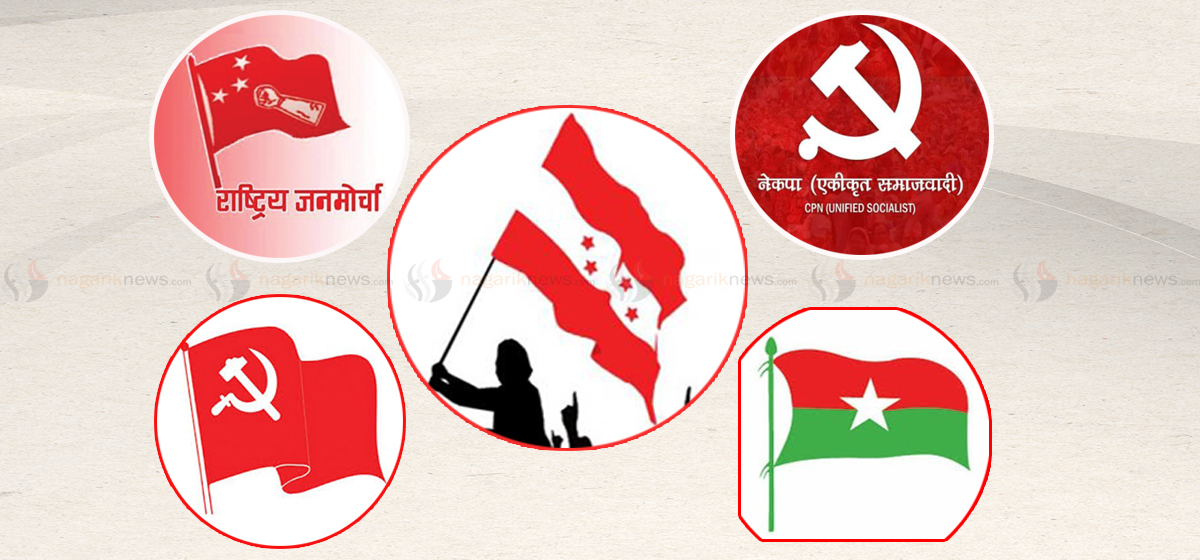KATHMANDU, Aug 6: Despite both the Nepali Congress (NC) and CPN-UML’s coalition partners: Nagarik Unmukti Party (NUP) and Janata Samajbadi Party (JSP) Nepal, officially withdrawing their support to the government, Prime Minister KP Sharma Oli has shown no indication of seeking a vote of confidence from the House of Representatives.
According to Article 100(2) of the Constitution of Nepal, if the party the Prime Minister represents undergoes a split or any coalition partner withdraws its support, the Prime Minister is required to seek a vote of confidence within 30 days. However, even after 30 days have passed since the Nagarik Unmukti Party (NUP) withdrew its support, PM Oli has not informed the Federal Parliament Secretariat about any intention to seek a confidence vote. At this critical constitutional juncture, PM Oli is currently on a foreign visit, further raising concerns about the delay.
The coalition government’s rift with the NUP began after Kamal Bahadur Shah, the chief minister of Sudurpaschim Province, dismissed Rameshwar Chaudhary, Minister for Industry, Tourism, Forest, and Environment, from his post. This prompted the NUP to express its dissatisfaction with the ruling NC–UML alliance and withdraw support to both the Sudurpaschim and central governments on July 6. Although it has already been 31 days since the withdrawal, the prime minister has not approached the parliament secretariat requesting time for a vote of confidence.
Ruling coalition appeals to vote for coalition parties for safe...

An official from the Parliament Secretariat confirmed that no communication or discussion regarding the vote of confidence has taken place from the prime minister or his office. They argue that this constitutes a direct violation of constitutional provisions by the prime minister himself. Even though the NUP has withdrawn its support to the government, it has not recalled its State Minister for Culture, Tourism, and Civil Aviation, Arun Kumar Chaudhary, who also has neither resigned, nor has he been removed by the prime minister. NUP MP Ranjita Shrestha stated that the letter withdrawing support had the signatures of both the party's parliamentary leader Gangaram Chaudhary and State Minister Arun Chaudhary.
Meanwhile, JSP Nepal, another coalition partner of the government, also formally withdrew its support on July 16. According to the constitution, the 30-day deadline for PM Oli to seek a vote of confidence following JSP’s withdrawal will arrive next week. JSP Nepal currently holds five seats in the House, while the Nagarik Unmukti Party has four. When Prime Minister Oli last sought a vote of confidence in the House on July 21, 2024, he had secured 188 votes in his favor.
Despite the two fringe parties pulling their support, Prime Minister Oli still commands a comfortable majority through the NC and UML alliance alone. Legal analysts argue that even though the constitution mandates a vote of confidence within 30 days after a party withdraws support, since the NUP ministers have not left the government, it might not yet qualify as a formal withdrawal requiring a vote. Senior Advocate Tikaram Bhattarai stated that since the coalition that supported the prime minister during the previous vote of confidence on July 21 still technically remains intact, and because the NUP minister is still in the government, there is no mandatory requirement for PM Oli to seek another vote at this juncture. Bhattarai argued that because JSP Nepal is no longer in the government, its withdrawal alone does not necessitate a vote of confidence.
From the government's perspective, since the original agreement to form the government was only between the two largest parties (NC and UML) and other smaller parties joined later merely as supporting partners. Hence, their departure, according to the ruling side, does not automatically require the prime minister to seek a fresh vote of confidence.






































